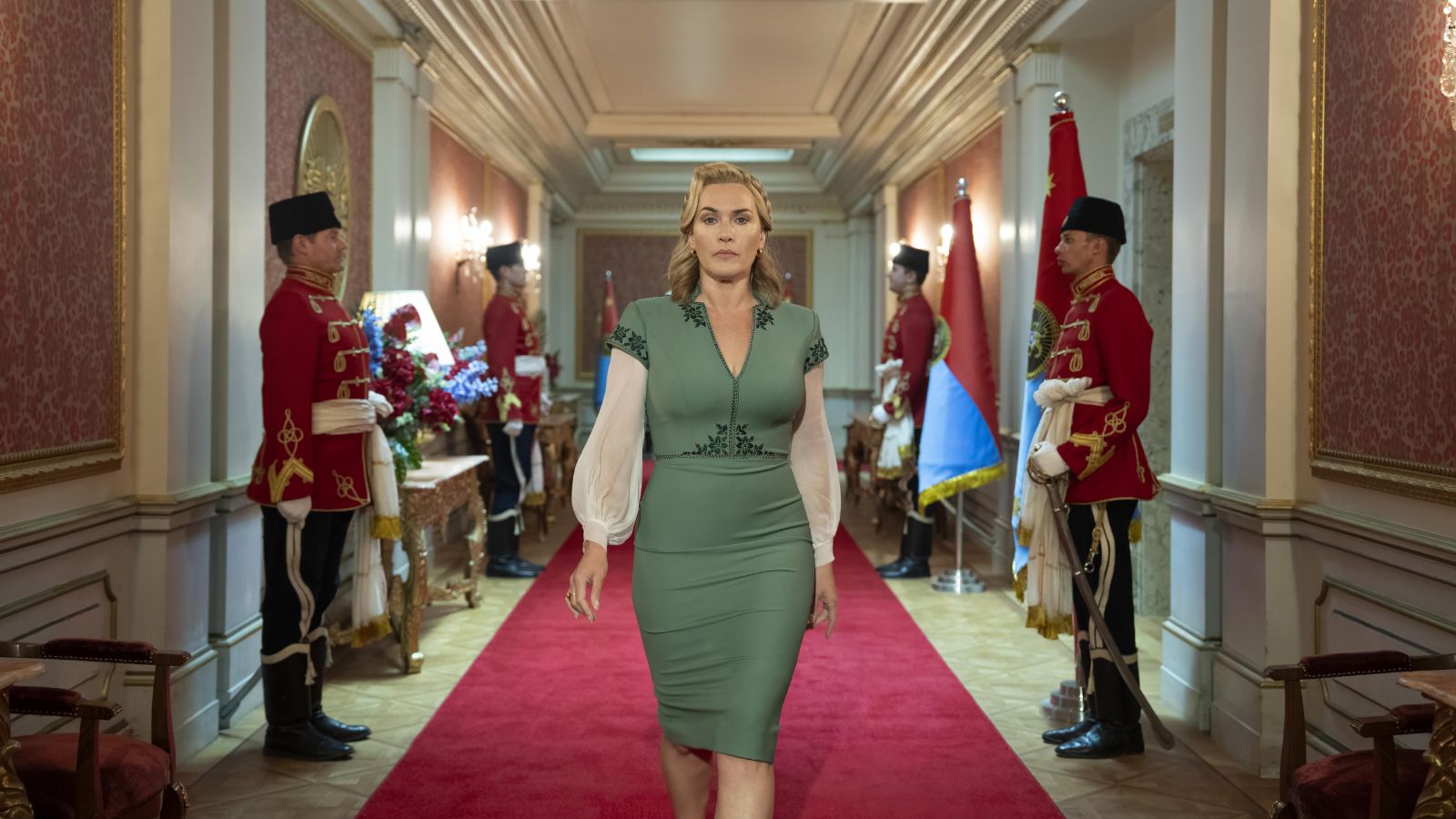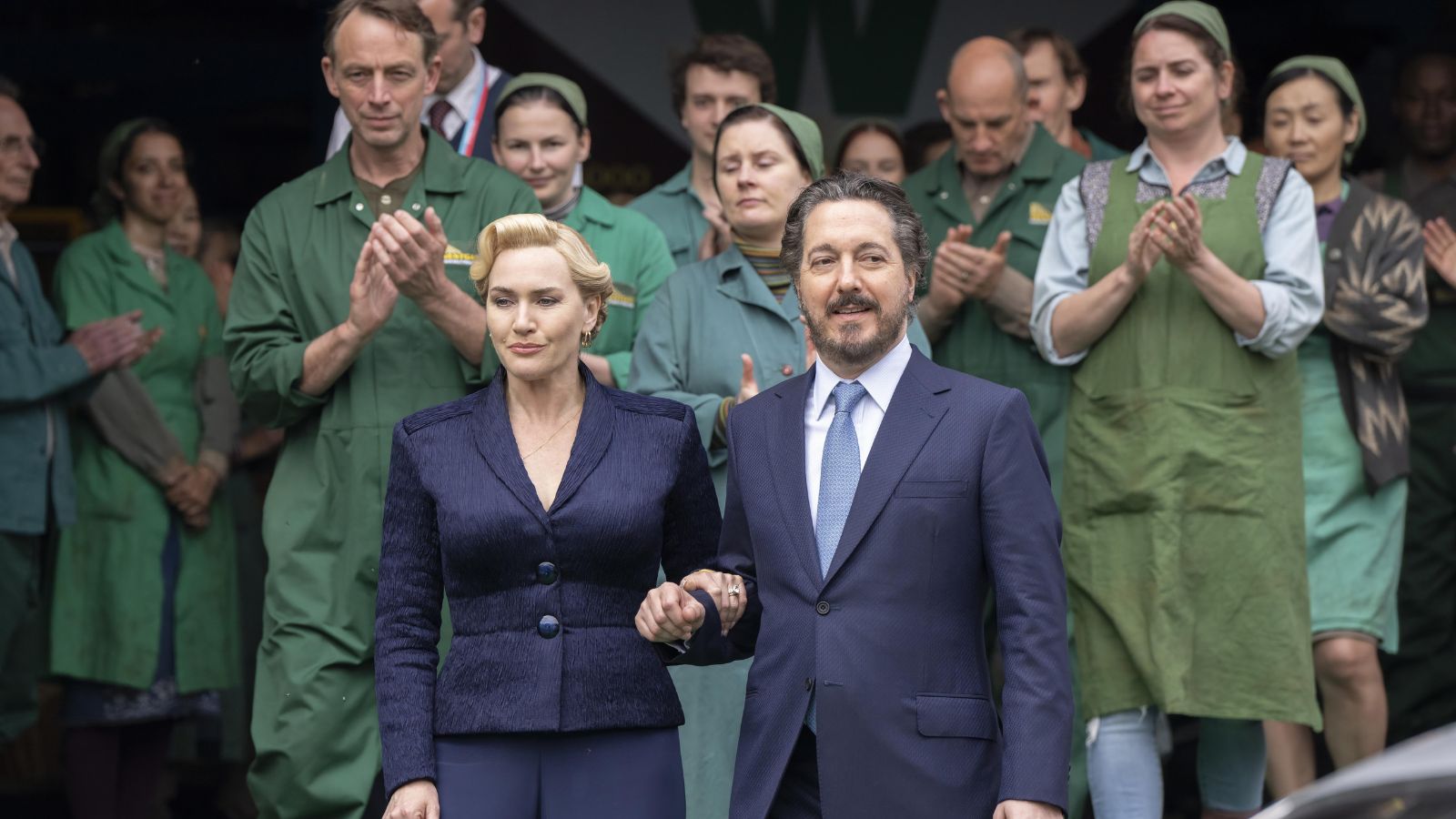
The first two episodes of HBO and Sky Atlantic’s The Regime show that Chancellor Elena Vernham’s difficulties stem from something she tries to contain in the glass coffin she visits regularly. But who is in the glass coffin, and why do they have such a big effect on the Chancellor?
In Kate Winslet’s third HBO series, she takes on the role of Chancellor Elena Vernham, the somewhat dysfunctional authoritarian leader of a fictional European country. The political satire showcases that despite Elena presenting herself as a calm and strong leader to her nation, behind the scenes, she’s riddled with insecurities and mysterious illnesses, which seem to get worse each episode.
Episode one of The Regime sees Matthias Schoenaerts play troubled soldier Herbert Zubak, whom the hypochondriac Elena hires to scan the air for mould. His arrival coincides with the anniversary of the Chancellor’s rise to power, which they’ve named “Victory Day.” However, after Zubak saves the Chancellor from an attempted assassination, his role in her life becomes larger than just scanning for mould.
Zubak convinces Elena that her doctors and cabinet members have been deceiving her regarding her illness and the mining deal with America. Zubak’s words to the Chancellor lead to her publicly rejecting the mining deal, arresting some members of her government, and, in episode two, getting the soldier to chase off U.S. Senator Judith Holt (Martha Plimpton) despite the country’s need for the Americans’ support.
While Elena’s connection to Zubak is concerning, it draws a key link to how a significant source of Elena’s insecurities seems to stem from her relationship with her father, who, despite being dead for over a year, she keeps on display in a glass coffin that she visits regularly. His death is alluded to as responsible for Elena’s obsession with clean air. But what does that have to do with why Elena keeps him in a glass coffin? Here’s what the series has revealed so far...

What Happened to Elena's Father and Why Is He in the Glass Coffin?
It's clear from the fact the Chancellor keeps her father Joseph's corpse preserved in a glass coffin on open display like Snow White that their relationship with him remains complicated.
The scene of Elena bringing him flowers during "Victory Day" gives insight into their relationship, mainly that despite his ambition, her father never became Chancellor. However, despite achieving something greater than her father and him being dead for over a year, it's apparent that she is still trying to live up to his expectations and prove something to him. She brags to his corpse that she has achieved more than him but also reflects on how he probably wouldn't approve of her Victory Day celebrations. The conflicting love and resentment Elena has for her father gives viewers a deeper understanding of Elena as it alludes to him being the reason for Elena getting into politics and her personality.
When discussing the significance of Elena’s scenes with her father, Winslet said, “When I was trying to shape the character and come to understand who she was for myself, I actually started with the mausoleum scenes, not in terms of learning the dialogue. or anything, but because there were lots of little keys and clues to her childhood, her backstory, her dynamic with that parent.”
Elena's father's death provides insight into why Elena is so fixated on mould. Viewers learn that Elena's father died of a lung disease, and it's also hinted that other members of her family may have died of the same disease, contributing to her paranoia that she's going to get it, hence why she has someone constantly checking the air quality. Something viewers see when Elena gets Herbert to check the air in the mausoleum before she goes inside. While this is an understandable fear, it also becomes apparent that Elena's vulnerability, when it comes to mould, has become a way for those around her to manipulate her.
Chancellor Elena’s primary physician continues the narrative that she may have inherited the same disease as her father, which is why it is imperative the palace is cleansed of the mould. After an assassination attempt in the first episode, her ministers suggest that she hand over her duties to them while she recovers. However, Herbert convinces Elena that she is not sick but is being gaslighted by those around her. Herbert’s speech to Elena sees her take back control, destroy the coal mining deal, and fracture the country’s relationship with the Americans.
Winslet revealed that when it comes to Elena she is “a fragile, emotionally disjointed, paranoid loose cannon of a woman…you never quite know what she's going to do or say or how she's going to react to things.”

What Are the Spots on Elena’s Father’s Face?
Elena refuses to let her father’s body go and instead decides to preserve it in a mausoleum within the palace. As dead bodies typically aren’t meant to be kept for a year, the spots on the Chancellor’s right-wing politician father’s face are his body starting to decompose.
Elena’s husband, Nicholas (Guillaume Gallienne), tries to convince her to let her father’s body go, but it’s clear that Elena’s overwhelming grief and complicated relationship with her father have her clinging to his decaying body. Elena’s father’s body becomes a sign of her political ambition and an odd reminder of her own health issues. Even when Elena notes the new spots, she carries on as normal, saying, "Silly old husk. You’ve got spots now. That’s new." However, the spots highlight how Elena lets air quality dictate her life as she asks to get the spots covered up while also becoming more fixated on her health.







